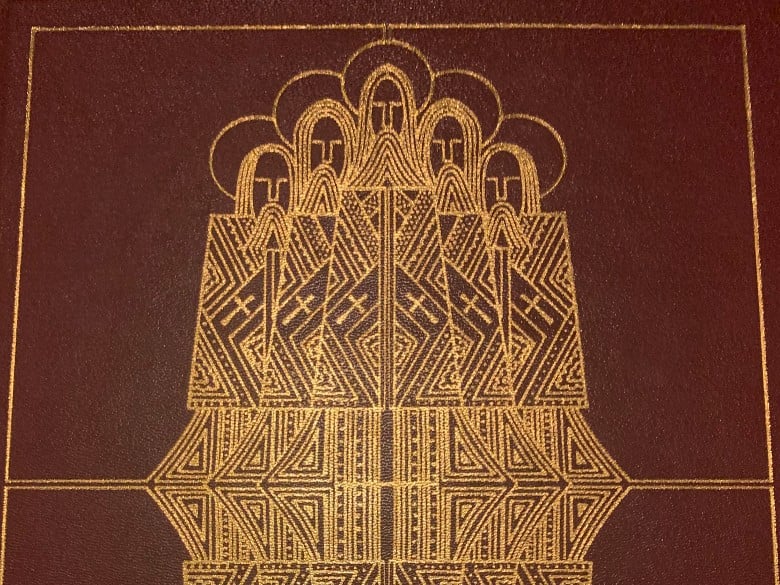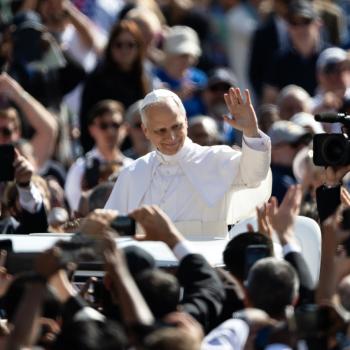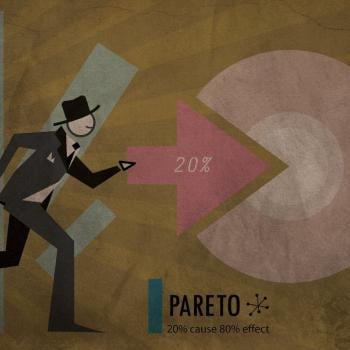
The awful thing is that beauty is mysterious as well as terrible. God and the devil are fighting there and the battlefield is the heart of man.
The Brothers Karamazov, book iii, ch. iii – Fyodor Dostoyevsky
The Battle of Virtue
Virtue can feel like a battle. Battle takes planning. Especially when the world around us is increasingly tempting us with comforts that point to selfish consumption rather than giving of ourselves.
As the quote above says, God is constantly pursuing your heart. Meanwhile, the evil one wants you distracted, so he is happy to toss advertisements for all of the modern distractions your way.
How do we stay aware of this battle and form habits for the good?
One Choice at a Time
In my post on forgiveness, I mentioned how we need to acknowledge our own potential for great good as well as great evil. The process is gradual. Each choice we make can be a small nudge towards God out away from Him.
Growing in virtue is like climbing a mountain, small changes in elevation are easily adjusted to and passed over. To gain in elevation very quickly takes a lot of effort but is rewarding. Lastly, it is easy to give into comforts, to drop off a cliff, but to drop too far will be painful and take longer to climb up out of.
Virtue Lessons in the Brothers Karamazov (No Spoilers)
In The Brothers Karamazov, there is a scene describing the events of a unusual duel.
One man fires his gun while the second, who initiated the challenge in the first place, just stands to be shot at. He throws his pistol to the woods and says “Forgive me”.
Many laughed at this action, but the fact that he allowed himself to be fired at before seeking forgiveness proved that he was not backing down from fear of death.
Later, someone inquires about his moment of bravery:
“Tell me, please, that is if you are not annoyed by my perhaps unseemly curiosity, what were your exact sensations, if you can recall them, at the moment when you made up your mind to ask forgiveness at the duel?”
The Brothers Karamazov, book vi, ch. ii – Fyodor Dostoyevsky
For his answer, the brave man explains that the night before he struck his servant out of rage. The morning of the duel, he looked out the window and saw the beauty of Gods creation in the world and felt an awful weight of responsibility. Heading out the door, he knelt before that same servant and asked for forgiveness.
“From that you can see for yourself,” I concluded, “that at the time of the duel it was easier for me, for I had made a beginning already at home, and when once I had started on that road, to go further along it was far from being difficult, but became a source of joy and happiness.”
Virtue Lessons in Exodus
In the book of Exodus, Moses gets a similar warmup to virtue. He flees to the desert after killing an Egyptian out of anger. Once he fled to Midian, he sat by a well.
Now the priest of Midian had seven daughters; and they came and drew water, and filled the troughs to water their father’s flock. The shepherds came and drove them away; but Moses stood up and helped them, and watered their flock.
Exodus 2:16-17
All of this comes before God asks Moses to go stand up to Pharaoh and free the Israelites.
Exodus 90 Teaching Virtue
“God generally wants us to be faithful in small things before the big ones.”
Exodus 90 Reflections – Day 3
Exodus 90 is a program that has picked up on this lesson in virtue – that little sacrifices make big ones easier.
From their website, they describe the goal best:
It’s a 90-day journey through the Book of Exodus, diving deeper into understanding the similarities we share with the ancient Israelites and finding our path to freedom from our own ‘modern Pharaohs’ holding us back from true unity with God.
For 90 days, we focus on three core pillars: prayer, asceticism, and fraternity — a model witnessed to us centuries ago by the desert fathers in the early Church.
Exodus 90 – What is Exodus 90?
While the sacrifices of Exodus 90 are not easy and not for everyone, there is a logic to this asceticism. By denying ourselves even good things and small things, we practice virtues for when it is really needed.
By focusing on perfecting small actions, even when I am failing at them , I can step back I see that I am improving in the larger battle.
Don’t Fight the Battle Alone
I hope that I can learn from both Exodus and The Brothers Karamazov to get better at this art of practicing small moments of virtue. Yet, I’ve learned that whenever I start getting proud of how good I’m doing in any virtue, God will allow a hit to my pride that humbles me.
So we can’t try to fight this battle of the heart alone. We need God and we need each other. That is another reason Exodus 90 emphasizes fraternity.
I’ll close with some advice I heard from Fr Mike Schmitz about this battle.
The last sentence in [CCC] 2157 says, “The sign of the cross strengthens us in temptations and difficulties.” And that is so important, at any given moment if you are facing temptation, to simply make the sign of the cross and say, “In the name of the Father, and of the Son, and of the Holy Spirit.”
This is the battle. The battle is not simply, will I do this sin or not. The battle is, am I willing to shut down the temptation.
Catechism in a Year Podcast – Day 280 at 13 mins
Read more Formed by a Flame or Subscribe to the Newsletter!

















